Barbara, European Commission
“My name is Barbara, I’m originally from Slovakia and I have been working for the EU institutions for nearly 10 years. I had the opportunity to work for the department dealing with Humanitarian Aid and Civil Protection. DG ECHO is an expression of ‘EU solidarity in action’ for people in need. It’s a very enriching work to help the EU save lives in Europe and worldwide. Currently, I work in DG Migration and Home Affairs, leading a press team, and focusing on topics of migration, borders and security.
To become an EU civil servant, I had to pass the EPSO competition with nearly 30.000 candidates for 147 posts. Practically speaking, this means 0.5% probability of succeeding or in other words, 5 out of 1.000 candidates succeeded. My advice for future candidates? Work hard on your knowledge, practice and train yourself. Don’t give up. Don’t forget to work on your mindset at the same time. Like with any sport – “practice makes the master” and overall, the experience will develop your skills, knowledge and grow further.”
Andreia, European Commission DG RTD
“My journey within the EU institutions started 5 years ago with my Blue Book Traineeship at the European Commission. Not only did I experience firsthand the communication actions of the Commission’s Representation in Bucharest, but I also learned more about EPSO’s selection procedures and the opportunities for young people that EU offered. This was also the time when I applied to the Generalist Administrator competition. After many hours of studying and practicing interview topics, with a pandemic in between, I was finally successful and closer to my dream of working at the EU institutions and making a difference in people’s lives. As a policy officer at DG Research & Innovation in the European Commission, I am working on a challenging and very interesting file: the simplification of the Horizon programme. My advice for future candidates is to stay focused on every step at a time, prepare well in advance for tests and interviews, and, most importantly, remember that perseverance is the key.”
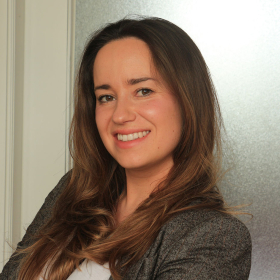
Andrea, European Commission (Eurostat)
"I have always wanted a job with a purpose – to make society a little bit better. And a healthy society starts with information you can trust.
Working at Eurostat allows me to contribute to the public interest and provide the reliable data that our policymakers – and all of us – depend on. Even before I worked here, my friends and I used to send each other Eurostat infographics if we wanted to prove a point, so it’s great to be at the source now.
Plus, it’s an interesting, appreciative, and multicultural workplace!
I came to Eurostat through the Generalist/Graduate competition, after first working as a trainee for the EU agency for energy regulation in Ljubljana. Work at Eurostat is very varied: we have a lot of contact with other Directorates-General (DGs)of the Commission, but we also work closely with Member States. I personally work with data on digitalisation and internet use, which is such a fast-changing topic that it always keeps me on my toes.
As Eurostat’s Youth Correspondent, I also have a special interest in ensuring that our work reflects the needs and perspectives of the younger generation. We are all working together to shape the EU of tomorrow – if you want to be a part of it, check out the EPSO website and apply!"
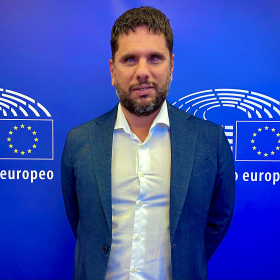
Maurizio, addetto stampa
"I am Maurizio, I am the Head of the European Parliament's Liaison Office in Milan. I am blind and I have been working for the EU institutions since 2015, when I started my European career as press officer.
My everyday work consists in dealing with different audiences of Italian citizens – media, youth, students, stakeholders, businesses – in order to raise awareness on European Parliament functioning and activity.
I never had problems because I was disabled. I don’t feel any obstacles. If you have a positive attitude, even if people are ignorant or sceptical, if you’re keen on sharing your experience, you can break walls."
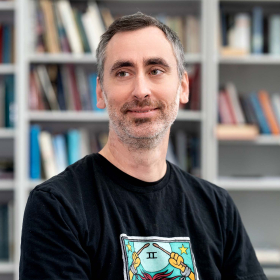
Denis, Council of the European Union
“There are two elements that spring to mind when I think about why my job is rewarding and enriching: quality and multiculturalism. It’s rewarding to know that the translation unit puts quality before quantity. We are normally - political deadlines notwithstanding! - given the means and the time to ensure our work is of the highest possible standard. Linguists love spending time looking for that one word that fits just right. In addition, it’s enriching to work in an environment with people from all over Europe, so I can bounce ideas off colleagues from entirely different backgrounds and think ‘oh, wow, I’d never thought of it that way’.”
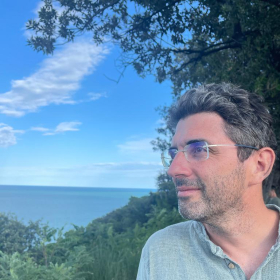
Alberto, European Commission
“It is very exciting to participate in such an important policy area as energy, which has a direct impact on our daily lives and those of future generations. As a lawyer who has always been passionate about transnational legal issues, I find it particularly fascinating to be involved in the shaping and application of Euratom law. The working environment is very stimulating and enriching, as it allows for a constant exchange of views with people with a very diverse mix of competences and backgrounds. Luxembourg is a unique place. A capital at the centre of Europe with a very distinctive international vibe, where one can hardly feel like a foreigner.”
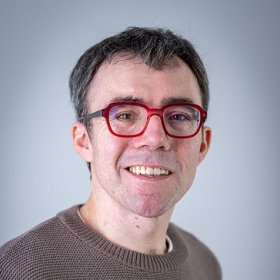
Pablo, European Parliament
“I enjoy language and feel fortunate to work at the European Parliament, where translators strive to provide the best possible language versions to both Members and the public.
Multilingualism allows people in the EU to participate in the European project on an equal footing, and communicating with citizens in their own language fosters a sense of belonging.
The texts and tasks are diverse, and often challenging. Although technology is an inestimable asset, what I appreciate the most are my great colleagues: there is a close-knit team spirit, and everyone is open to newcomers and always willing to help out.”
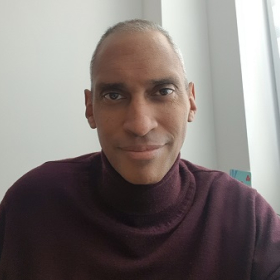
Stephane, responsible for defining and delivering services to researchers
"I am Stéphane, I work at the Directorate-General for Research and Innovation. I am responsible of the unit in charge of defining and delivering services to researchers everywhere in Europe, to help them turn the results of their research work into new products, services, and knowledge useful to our local, regional, or national public authorities.
I was born in Marseilles with French, German and Senegalese origins (at least as far as I know!). I’ve always felt very attracted by the European project, and I’ve always had the chance in my professional career, before joining the Commission, to stay safe from racism and discrimination. So, I did expect neither more nor less than being treated as any other European citizen in this institution, which is the feeling I’ve got throughout this fantastic professional experience”.
Dominika, Publications Office of the European Union
“I moved to Luxembourg thinking it would be a short three-year stint, but then I fell in love and couldn’t imagine leaving. It’s a hidden green gem where you’re always just a hop, sheep, and a jump (pun intended) from a forest, yet all the modern conveniences are close by. The mix of nationalities packed into this small area is amazing, making every day feel like a multicultural adventure. Plus, everything is so charming and picturesque that it feels like living in a fairytale. Who knew such a small country could be such a “grand” duchy? :)”
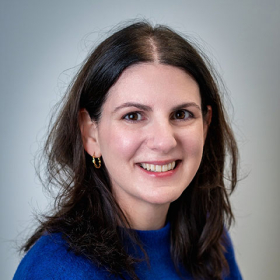
Souzana, European Parliament
“As part of the Greek team in the Directorate for Citizens’ Language, I love that our work extends beyond words — it’s about storytelling, creativity and collaboration. We bring Parliament’s texts to life by using clear and accessible language, always keeping our audience in mind. We also translate and record podcasts and subtitle videos, offering content in diverse formats to reach everyone effectively. Collaboration is at the heart of what we do, as we work closely with colleagues across languages, sharing ideas and brainstorming solutions to all kinds of linguistic challenges. When we see people engaging with our material and connecting in this way with Parliament’s work, it is incredibly fulfilling! It reminds us that our efforts truly bridge cultures and make a difference.”

